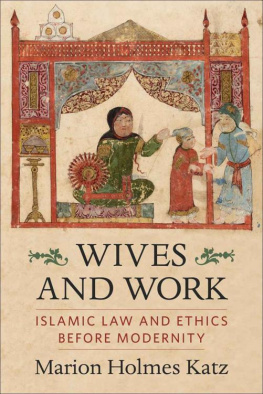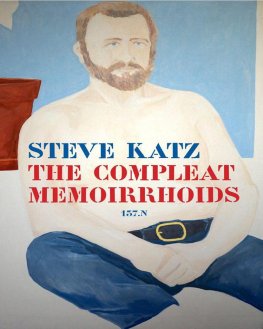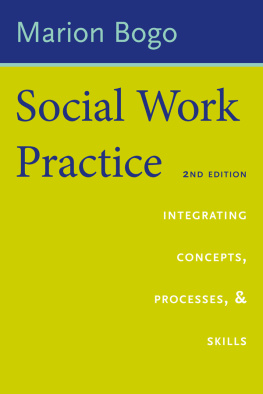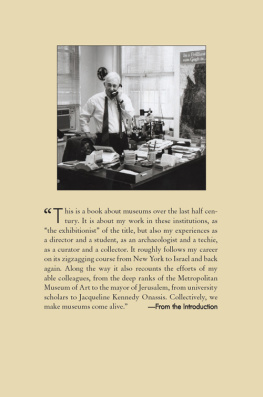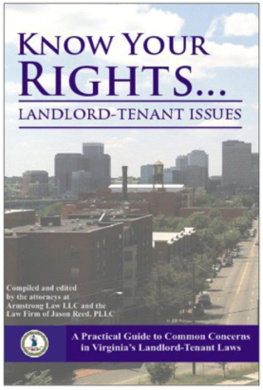Marion Holmes Katz - Wives and Work
Here you can read online Marion Holmes Katz - Wives and Work full text of the book (entire story) in english for free. Download pdf and epub, get meaning, cover and reviews about this ebook. year: 2022, publisher: Columbia University Press, genre: Romance novel. Description of the work, (preface) as well as reviews are available. Best literature library LitArk.com created for fans of good reading and offers a wide selection of genres:
Romance novel
Science fiction
Adventure
Detective
Science
History
Home and family
Prose
Art
Politics
Computer
Non-fiction
Religion
Business
Children
Humor
Choose a favorite category and find really read worthwhile books. Enjoy immersion in the world of imagination, feel the emotions of the characters or learn something new for yourself, make an fascinating discovery.
- Book:Wives and Work
- Author:
- Publisher:Columbia University Press
- Genre:
- Year:2022
- Rating:4 / 5
- Favourites:Add to favourites
- Your mark:
- 80
- 1
- 2
- 3
- 4
- 5
Wives and Work: summary, description and annotation
We offer to read an annotation, description, summary or preface (depends on what the author of the book "Wives and Work" wrote himself). If you haven't found the necessary information about the book — write in the comments, we will try to find it.
Wives and Work — read online for free the complete book (whole text) full work
Below is the text of the book, divided by pages. System saving the place of the last page read, allows you to conveniently read the book "Wives and Work" online for free, without having to search again every time where you left off. Put a bookmark, and you can go to the page where you finished reading at any time.
Font size:
Interval:
Bookmark:
Wives and Work
WIVES AND WORK
Islamic Law and Ethics Before Modernity
MARION HOLMES KATZ
COLUMBIA UNIVERSITY PRESSNEW YORK

Columbia University Press
Publishers Since 1893
New YorkChichester, West Sussex
cup.columbia.edu
Copyright 2022 Columbia University Press
All rights reserved
E-ISBN 9780231556705
Library of Congress Cataloging-in-Publication Data
Names: Katz, Marion Holmes, 1967 author.
Title: Wives and work : Islamic law and ethics before modernity / Marion Holmes Katz.
Description: New York : Columbia University Press, 2022. | Includes bibliographical references and index.
Identifiers: LCCN 2021058006 (print) | LCCN 2021058007 (ebook) | ISBN 9780231206884 (hardback) | ISBN 9780231206891 (trade paperback)
Subjects: LCSH: MarriageReligious aspectsIslam. | Domestic relationsReligious aspectsIslam. | Women in Islam. | Muslim women. | Women (Islamic law) | HousekeepingIslamic countries.
Classification: LCC HQ525.I8 K38 2022 (print) | LCC HQ525.I8 (ebook) | DDC 297.5/63dc23/eng/20211230
LC record available at https://lccn.loc.gov/2021058006
LC ebook record available at https://lccn.loc.gov/2021058007{to come}
A Columbia University Press E-book.
CUP would be pleased to hear about your reading experience with this e-book at .
Cover design: Milenda Nan Ok Lee
Cover image: The Makamat of Hariri . Copy decorated with paintings by Yahya ibn Mahmoud ibn Yahya ibn Aboul-Hasan ibn Kouvarriha al-Wasiti. Bibliothque nationale de France.
The bulk of the initial research for this book was carried out while I was the 20142015 Gladys Krieble Delmas Foundation Member of the Institute for Advanced Study, Princeton. That years research was also supported by a Fellowship from the American Council of Learned Societies.
I will be forever indebted to the late Patricia Crone for giving me the opportunity to be a member of the Institute for Advanced Study. My time there coincided with the final year of her life; her resolution and humor in the face of catastrophic illness were unforgettable. I am also deeply grateful to her successor, Sabine Schmidtke, to the other members of the Islamic Studies seminarparticularly Anver Emonfor their thoughts and conversation, and to Joan Wallach Scott for her generous feedback.
This project also benefited from the input of hosts and participants at a number of venues where I was honored to speak, including the Boston University Institute on Culture, Religion and World Affairs; the Abdallah S. Kamel Lecture at Yale Law School; the VIII International Conference of the International Society for Islamic Legal Studies at Leiden University; the Gender and Sexuality in Middle Eastern History lecture series at the University of Chicago; the Vanderbilt Legal History Colloquium; the Columbia Arabic Seminar; the Willis D. Wood Lecture at Amherst College; and the University of Texas at Austin and Harvard Law School. Particular thanks go to Kecia Ali at Boston University; to Samy Ayoub, Dale Correa, and Hina Azam at the University of Texas; to Leor Halevi and Thomas McGinn at Vanderbilt; and to Mariam Sheibani and Intisar Rabb at Harvard.
I am also grateful to everyone who read and commented on part or all of the evolving manuscript, including Mariam Sheibani, Sohaira Siddiqui, Najah Nadi, Saadia Yacoob, Ahmed El Shamsy, and the anonymous readers from Columbia University Press. Thanks also to Karen Bauer for her thoughtful comments at more than one conference. I owe a debt of gratitude to Maggie Sager for her meticulous and intelligent work assembling the bibliography and checking the footnotes of the manuscript. My father, Stanley Katz, and my brother, Derek Katz, offered needed moral support as I finished this project in a pandemic. Last but not least, I thank my mother, Adria Holmes Katz, whose endless unpaid labor made everything in my life possible and whose judicious copyediting helped to polish this manuscript. This book is dedicated to my husband, Bradley Marshall McCormick, whom I can never thank enough.
This book examines a series of iterations of the Islamic legal discussion of wives domestic labor. While it is generally assumed that classical Islamic law monolithically denies that wives have any obligation to do housework for their husbands, the material examined here shows this was subject to serious reflection and debate. The topic elicited such attention both because ownership of the wifes work raised fundamental questions about the claims and obligations exchanged between the spouses under the marriage contract and because denial of a wifely duty to do housework stood in conflict with what most premodern scholars understood to be right and good. Scholars efforts to resolve this tension resulted in a range of solutions, from delineating a clear distinction between legal claims and ethical ideals to forging a complete synthesis of the two. As a result, the issue of wives domestic labor offers a unique lens for questions about the relationship between Islamic law and ethics that have long been debated by scholars in the Western academy. By offering a systematic and sustained exploration of this issue, this book offers new insights both into the content of premodern Muslim scholars views of family and work and into the evolving logic and dynamics of fiqhthe Islamic scholarly discipline of law. In addition, while much of the literature on Islam and gender has focused on issues of sex and sexuality, this study is premised on the idea that labor is equally central both to the ways in which people live gender, family, and status and to the ways in which Muslim scholars sought to think them.
Sometime in the 1890s an elite Ottoman woman imagined a cordial yet polemical exchange with a pair of European Christian visitors to Istanbul. In response to the accusation that among you [Muslims], men treat the women like servants, her protagonist retorts that
Among us, it is the duty of the wife to manage the household, and of the husband to pay its expenses. If men have the means, they employ a servant and a cook. If [the husbands] means suffice only to feed [the couple], his wife takes care of the housework as a matter of good character
The author of this passage, Fatma Aliye (18621936), was the daughter of the Ottoman statesman Ahmed Cevdet Pasha and a pioneering author of Turkish fiction who at the same time cherished feminist ideals and struggled with Western feminism. Fatma Aliyes brief discussion of housework frames it within a nexus of ethical and legal duties: wives have no enforceable obligation to provide domestic labor but if necessary do so voluntarily as a matter of magnanimity. In the anecdote about the exemplary early caliph Umar, the significance of a wifes lack of obligation to do housework is not that she actually refrains from doing so (apparently, even if her husband rules an empire) but that she places her husband morally in her debt.
In raising the issue of wives domestic labor, Fatma Aliye anticipated a lasting motif both in the defense of Islamic gender norms vis--vis orientalist critics and in the internal argumentation of Muslim circles sympathetic to womens rights. In the United States in the late twentieth century, wives exemption from domestic labor was routinely cited among the elements of the classical Islamic law of marriage that were recuperable for a gender-egalitarian project. As the leading Muslim American lawyer Azizah al-Hibri wrote in 2000, the wife is under no duty to do any housework although she may engage in such work on a volunteer basis.
The issue of wives domestic labor has retained its currency; as Asifa Quraishi observes in a 2013 essay, Muslim womens rights advocates today regularly point to [the] old Islamic legal principle that a wife has no Islamic obligation to do housework.
Next pageFont size:
Interval:
Bookmark:
Similar books «Wives and Work»
Look at similar books to Wives and Work. We have selected literature similar in name and meaning in the hope of providing readers with more options to find new, interesting, not yet read works.
Discussion, reviews of the book Wives and Work and just readers' own opinions. Leave your comments, write what you think about the work, its meaning or the main characters. Specify what exactly you liked and what you didn't like, and why you think so.

